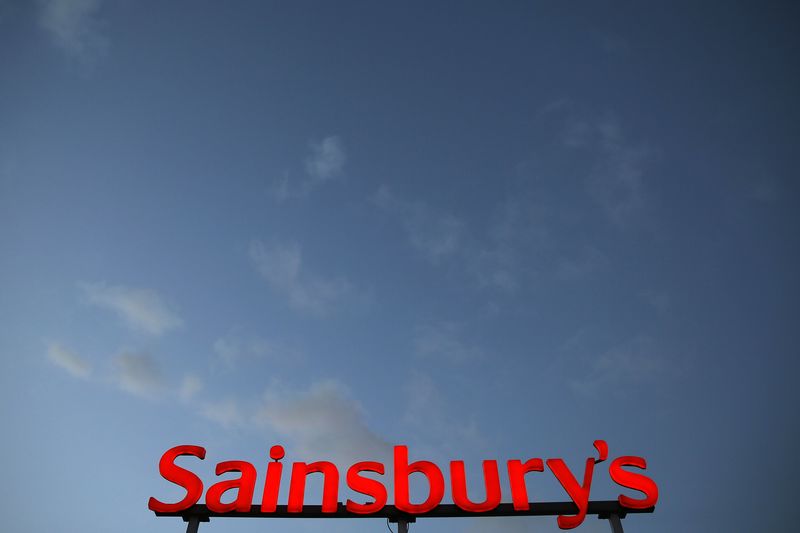By James Davey
LONDON (Reuters) - Britain's big supermarkets may not yet have reached the low point in a crisis brought about by the rise of German discounters Aldi and Lidl, the head of the country's second biggest grocer Sainsbury 's (L:SBRY) said.
Sainsbury's and its "big four" British rivals, market leader Tesco (L:TSCO), Wal-Mart's Asda (N:WMT) and Morrisons (L:MRW), have seen market share, sales, profits and asset values hit by a fierce price war to stem the loss of shoppers to the discounters and by the impact of commodity-led deflation.
"Despite the fact that the big four grocers have closed the price gap considerably to the discounters it hasn't reached a tipping point where the movement of customers towards the discounters has either reduced or stopped," Chief Executive Mike Coupe told Reuters in an interview.
Coupe said Sainsbury's had narrowed its price gap to just under 20 percent from about 38 percent early last year, but the tipping point in countries such as France had been a gap of 5 to 10 percent.
"The ultimate end game will be to get to a point where the profit margins of the discounters are squeezed to the point where their German lords and masters prefer to spend their capital in the U.S., China, eastern Europe, anywhere but the UK," he said at the grocer's store in Fulham, southwest London.
Sainsbury's has shown greater resilience to competition from the discounters than its big four rivals but has still endured seven straight quarters of declining underlying sales. It reported an 18 percent fall in first-half profit, with its operating margin down 39 basis points to 2.71 percent.
FLATLINING MARKET
"With a market basically flatlining ... there's still a high degree of uncertainty," said Coupe.
"Can I put my hand on my heart and say that the worst is over? The answer to that question is No."
He said a more optimistic prognosis would require a move away from the sector's deflationary spiral and a rise in consumers' disposable income translating into higher sales.
Sainsbury's shares are up 5 percent over the last year but are down a third on levels seen two years ago.
Last month, industry data showed Aldi and Lidl had achieved a combined 10 percent share of the British grocery market for the first time.
"The challenge between the supermarkets and the discounters is the biggest challenge that faces our side of the industry for the foreseeable future," said Coupe, 55, a Sainsbury's veteran of 11 years who succeeded Justin King as CEO in July last year and has previously worked for both Asda and Tesco.
He said it was reasonable to expect net margins at the large grocers to return eventually to about 3 percent.
"The bit that we can't predict is have we reached the low point or is there more to go?" he said, given the possibility of more price cuts across the sector.
"You're looking at three major competitors, all of whom are still seeing their sales go backwards, and perhaps they will see the compelling need to do something."
Sainsbury's has spent 150 million pounds in lowering prices over the last year and plans further targeted cuts on the 10 percent of its products that overlap directly with the discounters, financed by cost savings.
CONSOLIDATION UNLIKELY
Asda boss Andy Clarke said last month he expected the malaise in Britain's grocery sector to lead to some form of consolidation.
However, Coupe is not anticipating any activity any time soon.
"In effect there are three possible scenarios: Asda/Sainsbury's, Sainsbury's/Morrisons, Morrisons/Asda," he said.
"In any scenario you end up potentially with a bunch of real estate that you probably wouldn't want. So why would you get involved in that?"
Competition rules would preclude Tesco, which has a UK market share of 28 percent, from any deals, and make other combinations extremely problematic.
Coupe also noted that all of the big four are still generating cash.
"Therefore, it's quite difficult over the next five years to imagine a scenario where any particular one of us becomes financially distressed for it (consolidation) to become an imperative. But it's certainly not impossible."
